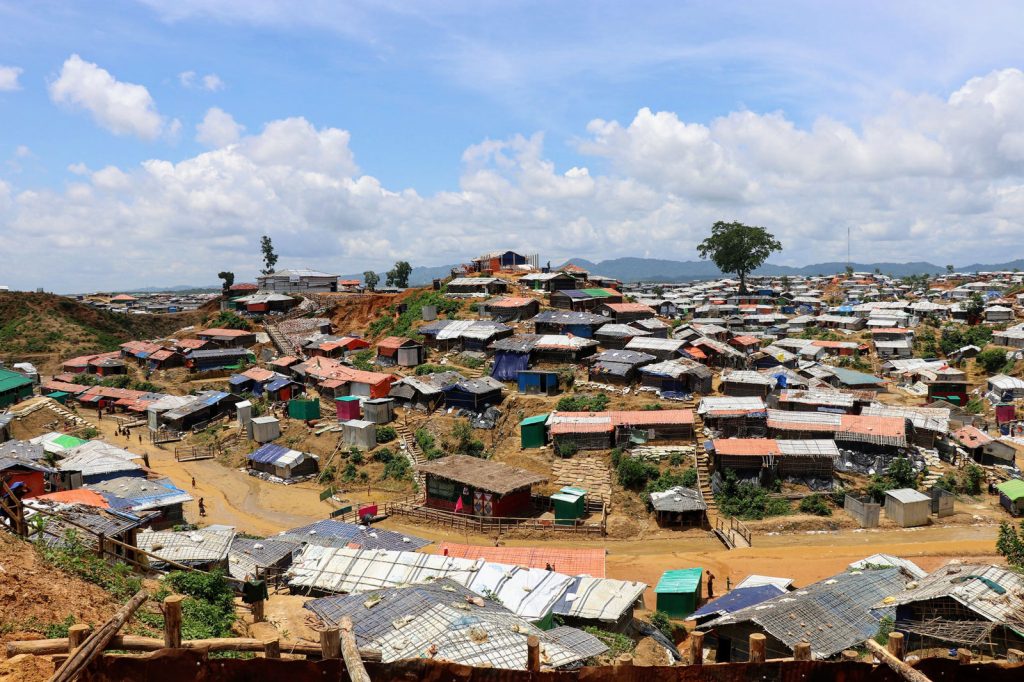Nothing is permanent, so everything is precious. Here’s a selection of some happenings—fleeting or otherwise—in the Buddhist world this week.
Trump’s Buddhist Babble
President Donald Trump drew some criticism from Buddhists online this week when he tweeted a message about the holiday Diwali, saying it was celebrated by “Buddhists, Sikhs, and Jains . . . around the world.” Buddhists, including actor George Takei, pointed out that Diwali is not typically considered a Buddhist holiday.
As a Buddhist, I would like to point out that Diwali is not a holiday celebrated by nearly any of us. It appears you meant Hindus, but I doubt you or your trusted advisors know the difference or care. https://t.co/IDlVq6gAP7
— George Takei (@GeorgeTakei) November 14, 2018
It is true, however, that at least one school of Buddhism celebrates Diwali. The festival of lights is observed in Newar Buddhism, a Vajrayana tradition practiced primarily by the Newar people from Nepal’s Kathmandu Valley. Tricycle leaves it to the reader to decide whether Trump meant to give a brief lesson on the pluralistic nature of global Buddhism or made an error. Consider the record and come to your own conclusions!
Twitter Founder Visits the Dalai Lama
Speaking of Twitter, the social media site’s cofounder and CEO Jack Dorsey met His Holiness the 14th Dalai Lama in India recently. As one might expect, Dorsey tweeted an image of their meeting, calling the Dalai Lama “an amazing teacher.”
Thank you @DalaiLama. You’re an amazing teacher.
Also: thank you for not actually pulling out my nose ring, despite a lot of painful effort. pic.twitter.com/fEYtui5EY0
— jack (@jack) November 10, 2018
According to the Central Tibetan Administration (CTA), Dorsey thanked the Dalai Lama for using Twitter, where he has 18.8 million followers. The CTA noted that other tech giants, such as Facebook and Google, have avoided meeting the spiritual leader for fear of alienating China, where they hope to penetrate a highly regulated marketplace. Twitter has been blocked in China since 2009, but the site has become popular among political dissidents.
Rohingya Repatriation Sparks Panic
Rohingya families have been fleeing refugee camps in Bangladesh out of fear that they will be forced to return to the homes they had to abandon in Myanmar, Reuters reports. In October, Bangladesh and Myanmar agreed to a plan to repatriate the hundreds of thousands of Rohingya people who crossed the border following the Myanmar military’s violent crackdown in 2017. A United Nations report has said the country’s human rights violations amount to genocide. The first round of repatriation was set to take place on November 15, but it was stalled this week due to the panic at Rohingya camps and following outcry from rights advocates who say that Myanmar is not yet safe enough for the Muslim ethnic minority to return, according to NPR. While the effort to return the Rohingya people to Myanmar continues, the Bangladesh’s Rohingya Relief and Repatriation Commissioner Abul Kalam has vowed that “No one will be forced back to Myanmar.”
Meanwhile, Amnesty International revoked Myanmar leader Aung San Suu Kyi’s human rights award, according to a press release. In 2009, the group gave Suu Kyi, a Nobel Laureate once heralded as a human rights icon, their highest honor, the Ambassador of Conscience award. But in a statement on November 12 Amnesty International’s Secretary General Kumi Naidoo said they were withdrawing the award due to her response to the Rohingya crisis. “We are profoundly dismayed that you no longer represent a symbol of hope, courage, and the undying defense of human rights,” he said.
Tibetan Monastery Service Creates New Online Portal
A group of senior Tibetan lamas, including His Holiness the 14th Dalai Lama, have joined up to create a new website that offers access to the services and teachings of more than 40 major monasteries and nunneries in India and Nepal. Gompa: Tibetan Monastery Services will offer webcasts of teachings from prominent lamas, allow users to arrange prayers online, and conserve and expand the Tibetan International Digital Library (which was recently created by Karmapa Ogyen Trinley Dorje), according to a press release. Gompa also is raising funds to help monasteries and nunneries with their “educational, environmental, and social welfare projects,” according to the organization, which says it has raised $100,000 so far. Donors can use the new site to contribute to Gompa or send offerings directly to sanghas along with a dedication message.
Thank you for subscribing to Tricycle! As a nonprofit, we depend on readers like you to keep Buddhist teachings and practices widely available.
